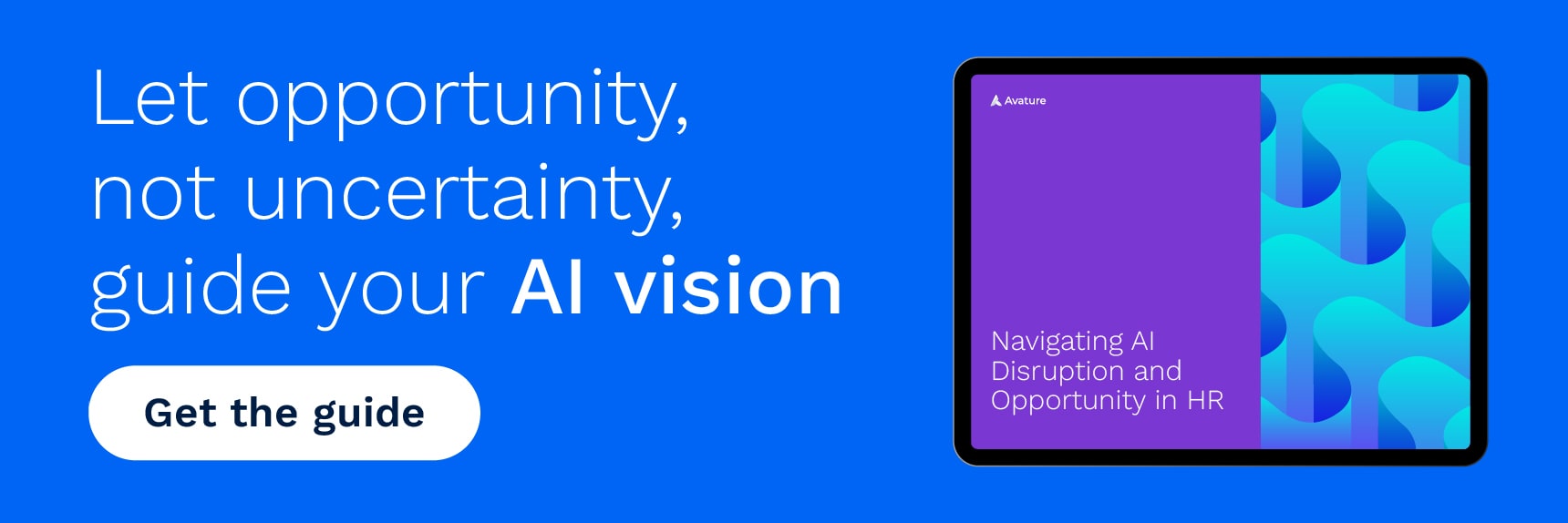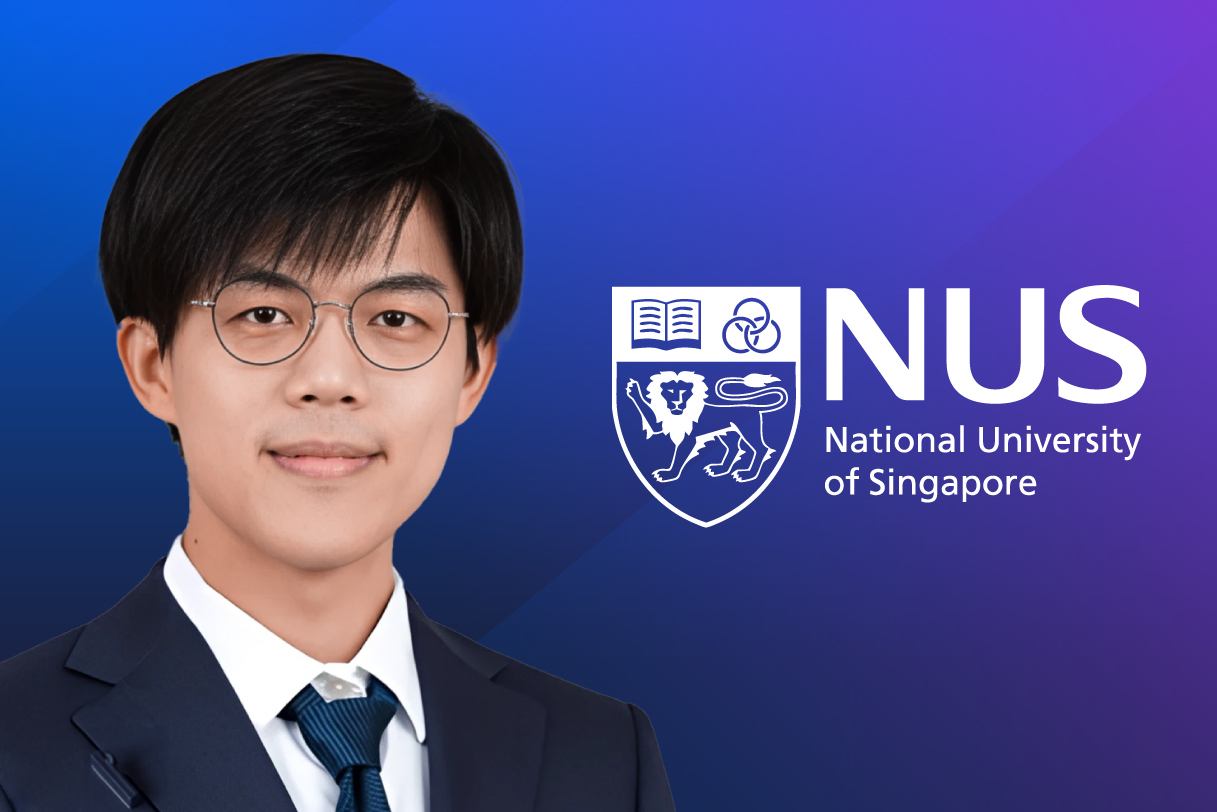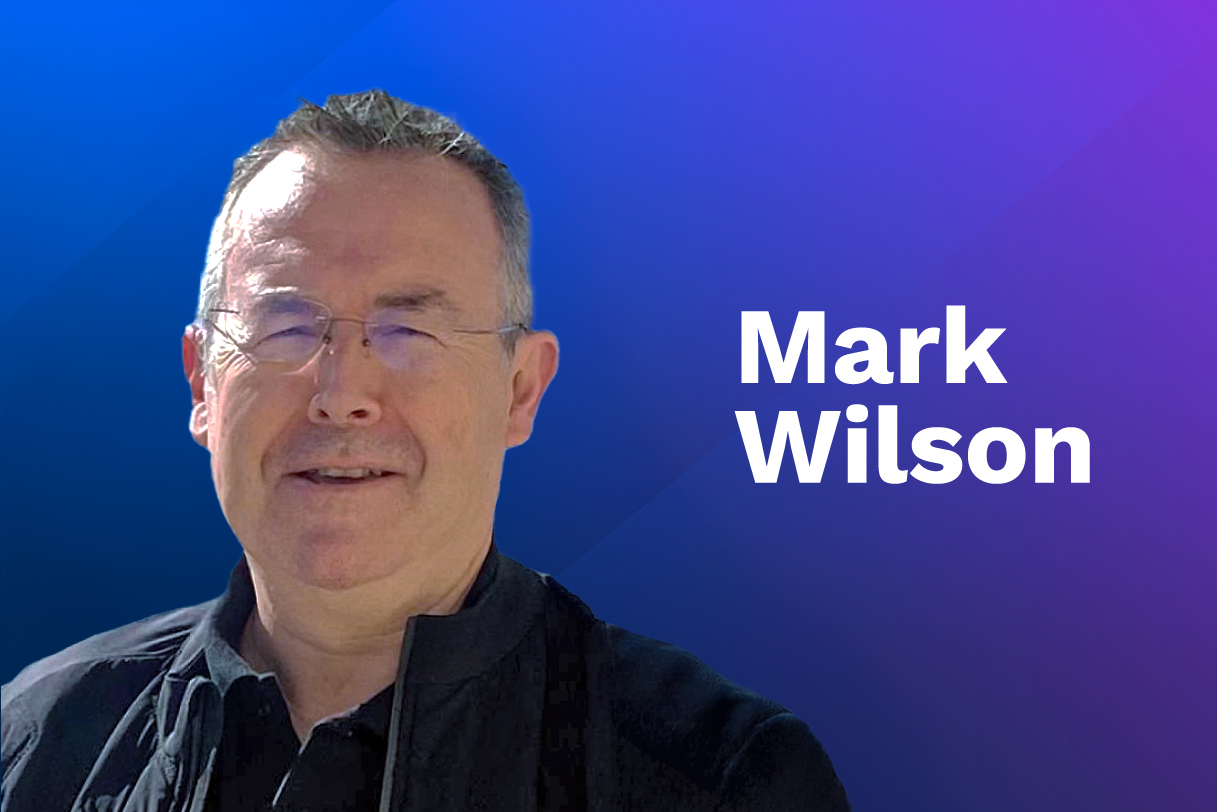Dimitri Boylan:
Welcome to another episode of The Talent Transformation Podcast. Today, we have Jen Corio, Director of Talent Acquisition at BMC. Hello, Jen.
Jen Corio:
Hi Dimitri. Thank you for having me.
Dimitri Boylan:
Well, thanks for being here. Jen, can we maybe start with a little bit on BMC?
Jen Corio:
So you’re in the industry and or one of our customers, we really help them digitalize their technical stack, looking at how we can help them maximize the products that they have to ensure that they’re being able to modernize, being able to service their customers with our products as well. And that kind of leads me on that the average person probably doesn’t even know that they’re engaging with our products.
Dimitri Boylan:
Okay. Yeah.
Jen Corio:
You can’t order a pizza from Domino’s without the product, but you can’t book a flight without touching our products. And that’s why I said, we’re the person behind mask, not many people know, about our company. But we’re always there. We’re always engaging in sort of the day to day modeling to avoid the modern world.
Dimitri Boylan:
Right. So you’re in a tech company?. But you’re also running talent acquisition where you are, probably even changing your own talent acquisition technology stack. But your own background is not technology. You are actually coming from inside talent acquisition.
Jen Corio:
That is true. Yeah. I so, yeah, in recruiting, about 20 years ago now. I fell into recruitment as a coordinator. And then, of course, and then a recruiter. And really, my management journey started at BMC, about, six and a half years ago. But I’ve always been passionate about technology. I’ve been very fortunate that I had a leadership team that’s invested in me and has seen my passions for technology and presented me with opportunities that I can combine both together.
Dimitri Boylan:
Well, you’re lucky that you’re in a company that clearly places a lot of value in technology. So they would probably say use a lot of technology regardless, because technology’s great. And so generally, the people that you work with are proactive when it comes to technology. Eager to be agile. This probably makes your transformation easier to pull off, but you still have to develop talent acquisition strategies that work in markets. So let’s talk a little bit about where you are on that, what you’re thinking about, what you’re doing that you think is interesting in this market, which you know, has changed a lot.
I describe it as the post-COVID market, soon to be the AI market, but maybe not yet in terms of talent. What’s going on? What are you working on at BMC?
Jen Corio: Corio
So we, obviously, like many, many organizations evolved when the pandemic happened. And we have to manage our auditing processes differently. We have to think about traction strategies in a much more different way. We’re nearly having to do the same thing now with the generative AI aspect coming straight at us.
I think, at the moment, that it’s slightly different for our recruiters. And I say it’s slightly different for our recruiters in that, yes, they had to evolve in that post-COVID era. But it was very much dictated to them by the candidate’s drivers and the hiring manager skill needs that they needed to recruit. Whereas now I feel the recruiters are passionate and they have a desire for the AI generation that is coming next.
Dimitri Boylan:
Right.
Jen Corio:
There is obviously an element of fear in the industry, which is absolutely natural. But I think that, whereas historically people have maybe just sort of dismissed that fear, people are genuinely thinking about how they can be more proactive about mitigating that fear in the future.
Dimitri Boylan:
Okay. Approaching it… Yes.
Jen Corio:
And we’re approaching that by really building the knowledge within our recruiters. We’ve focused heavily in terms of enabling their understanding of AI and generative AI versus sort of sitting back and allowing them to just kind come to their own conclusions.
Dimitri Boylan:
Besides telling your recruiters about AI, you’re obviously having to answer some questions, are there? Right? I’m assuming the message is that you spend more time on human interaction and less time on busy work, which helps you generate candidates to talk to.
You spend less time asking simple questions that, you know, somebody could have just answered to the machine instead. So that’s kind of the obvious stuff. Yeah. Do you think that the recruiters are buying that message? Or do you think that they’re still very concerned about what their job is going to be?
Jen Corio:
I think there’s still a level of concern. I think that’s natural as well. I think that there is definitely much more desire for the human element. And certainly for myself as a leader, all of the development areas are around harnessing those human skills.
We’ve got a brilliant team that engage with stakeholders really well. That stickiness and that right at the table, that edge to always being in the conversation is something that’s going to become even more critical in the future.
Dimitri Boylan:
And so do you think because being a recruiter years ago, or being a headhunter like I was, where we just had a telephone and then we just met people live. We talked to people on the phone, but then we brought people in and sat down with them. The art of the conversation was very, very important. And the agility in the conversation to get beyond the facade of the candidate and really understand what makes them tick was very, very important.
But then you get into a phase where there was a lot of technology. And some recruiters began to think, “Well, I’m sort of a user of technology and the technology does a lot of things. I kind of run the technology; I have become a runner of technology. I make it work, and it produces the result.”
And I think some people have forgotten about that level of sophistication that you can have when you converse with somebody.
Jen Corio:
Absolutely. I totally agree. And the way that I have positioned it with my team is to start thinking about it being about the candidate in the respect of we’re humans first. And taking a people conversation to, whether it’s a candidate, a hiring manager or a business partner. When you think of the people you’re talking about, whether it’s individuals, whether it’s a hiring process, whether it’s an interview process. When you think of it from a person perspective, you get to that deeper level.
We’re really thinking more from that human aspect. How would I want to experience that, or what experience would I want that individual to go away with? That really changes the conversation. And when we’re putting technology first, a prime example might be, “Well, Mr. Manager, you need to complete this interview feedback form because the system doesn’t allow me to move forward until I have done this.” Our motivators aren’t right, and people become frustrated, and then they try to bypass the process. You know, human nature. We look for the easiest route.
I think that the conversation in particular has changed post-COVID because candidates aren’t coming into the conversation and saying, “Well, what’s the salary, where is it based, how often do I need to be in the office?
Dimitri Boylan:
Well
Jen Corio:
They certainly are asking that question. But it’s not the only one.
And that’s really making recruiters think more about that ‘you appeal’, that attraction strategy. Post-COVID, straight after, we didn’t necessarily have the tools that we have had during the last 18 months, which has helped us think about crafting that appeal or that personalization. So, we’re seeing it come together much more cohesively.
Dimitri Boylan:
Yeah, as a recruiter, you need to know what you want to accomplish, regardless of whether there is AI or no AI. I also think that, obviously we develop technology, but at some point you really want the technology to become invisible.
So, how much time are you spending training the new generation of recruiters who might come into the job thinking, “Well, this is great. There’s lots of technology.” Like I said, you run the technology, and it kind of does the job, and you make sure it doesn’t do anything wrong. How do you get them to really dig into this art of recruiting and, at the same time, understand the science of recruiting?
Jen Corio:
I mean, it’s a great question. I think, we keep enablement at the forefront of a lot of the personal performance aspects. So, the goals of this role have an enablement target of learning that they can do. They choose the subjects themselves. So we try to keep it at the forefront of the daily tasks so that it doesn’t feel so much like it’s forced upon them in the respect of, I have to do this, and it will not be of interest.
A classic example in the past is people being recognized for the amount of learning that they have done. Great. But what have you done with it, and how have you implemented it? That’s the more meaningful side of your learning. And so I’ve always taken a very different approach to the education of an individual. But I also think that another thing that’s changed post-pandemic is the way that we learn and the way that we consume information.
Dimitri Boylan:
Yeah.
Jen Corio:
It’s entirely different. It’s podcasts. It’s videos. Yes, there are whitepapers still.
Dimitri Boylan:
Somebody reads them.
Jen Corio:
Somebody reads them.
Dimitri Boylan:
Not many though.
Jen Corio:
Maybe there the new fish and chip paper.
Dimitri Boylan:
Right. And they’ve been written by ChatGPT anyway, so there’s no author being offended by them not being read.
Jen Corio:
So, yeah, I think you have to take an organic level of interest, but you also need them to be curious.
Dimitri Boylan:
Yeah. That’s a good point.
Jen Corio:
You absolutely have to have that and if they’re not curious, I think those are the ones that potentially would be more affected by the AI that is coming than those who are curious.
Dimitri Boylan:
So at Avature, curiosity is one of the five things that we look for when we review candidates because it’s not how much you know at that moment, it’s how much you’re willing to know or are you willing to invest in knowing. And the truth is, curious people are always trying to know something new.
And if you’re not curious, then you see people. Yeah. And, you know, question is, I always say a lot of work, and I always say, you know, when we hire adults. So I’m hoping that they’ve already figured out that they need to be curious in this world as it evolves.
If you bring a new recruiter into your organization, how well defined is the path to get from maybe an amateur recruiter to a really high-value strategic partner to hiring managers that are very specialized in whatever they do and may be specialized in many different things that you as a recruiter, are not specialized in but you need to know what to say and not to support them.
Jen Corio:
Yeah. You know, I’ve seen team members come in at quite junior level with some fresh agency out their time in-house, evolving into leading executive hiring. And I think it’s not necessarily a time span. I think it is capability, curiosity, the ability to adapt, and communication style. And I wouldn’t say it’s as great as something that it BMC do, but I do think that we have a leadership team that recognizes potential and through that mix of the individual, the themselves being able to develop and have that desire and motivation, that’s where I’ve seen them be really successful.
Dimitri Boylan:
Yeah.
Jen Corio:
I love that Avature looks at curiosity. I myself would 100% say that’s why I have the knowledge of Avature. I did today. I was curious what I was, the one that was going into the system and making all this or playing with this.
Dimitri Boylan:
Yeah.
Jen Corio:
And it just goes to show you that whether it’s Avature or it’s generative AI, it really shapes a lot of careers. And along with learning ability, I think that it’s a good dynamic that modern recruiting needs to put more emphasis on.
Dimitri Boylan:
Yeah.
Jen Corio:
Even in some of the conversations I have is the natural, desire to say how many years experience or, how many skills in this and, and actually, when you really boil it down, when you’ve got the qualities of curiosity, motivation, learning desire, actually, those things are going to make somebody more successful than, “I’ve had 20 years in the industry.”
Dimitri Boylan:
True.
Jen Corio:
Doesn’t mean it’s relevant.
Dimitri Boylan:
You do have to be the right organization for that. But if you are, and you are curious, and I think that for us, you know, we address that with Avature in the sense that, you know, we’re a technology company and we are supporting recruiters. And I said to my team, “We’re not going to hide the technology or cover it over, make it simple to understand. We’re actually going to explain as it is. Fine. And they’re curious if they want to go further. Fine. If they’re not curious about that, they don’t have the time to be curious, that’s okay too. But we like to get people interested enough in the technology to fine to seek out ways to leverage and use it in different ways over time.
Let’s talk a little bit about, your involvement as TA in the strategic direction of BMC. Has that relationship evolved? How deep is it? How connected are your programs to the strategy of the company? I have an idea about that, because in Avature, I always look at my talent acquisition as very strategic. And when my company expands, I always go to them first. And I say things like, “I’m thinking of being here, is there talent there?” You know, so I’m always used to that way. But, you know, I don’t know how many companies do that. What are you guys doing?
Jen Corio:
Oh, it is at the forefront of the majority of the work that we do. So we’re very fortunate that in, company strategy, we have a pillar to it that’s called “Prioritize people.” And that is all about, well, as it describes talent, talent management, talent acquisition, attrition, promotions. We we really keep the front, how we drive our strategies because ultimately, you lose talent, that’s a cost to the business and you don’t have enough people to deliver the strategy.
Dimitri Boylan:
And you’re in the tech sector, which is a take no prisoners recruiting world.
Jen Corio:
Absolutely. And I think in particular, from a talent acquisition perspective, that people conversation that we have is not just about the hiring. It’s about, “Okay, what are the development goals? What are your future skills? How does that tie to the product roadmap? Is that something like generative AI that’s on the horizon that we need to be prepared for?
Is our attrition rate going to cause us to spike in hiring? Is it going to cause us to slow down?”
And, for us at BMC, we’ve had a strong focus on strategic goals for the organization. And people really had to be at the front of that conversation, along with our business strategt, our sales strategy. They’re so critical to each other that you have to have that as part of the conversation. And again, we were very fortunate that we are in an organization that puts that first.
Dimitri Boylan:
Right. And of course, technology is always evolving. It’s leaping forward. You’re a tech company, so you’re also in a situation of saying, “How do we produce artificial intelligence inside our own platform?” Like us. So you are also in the process of recruiting people that are not just interested in AI, but actually able to create, generate and develop artificial intelligence. And that’s going to be pretty challenging. We all know that, that tech has lots of demands, and every now and then, you get a very specific demand that is sort of not there yet in terms of experience. Right? But everybody wants ten of those people.
This is kind of like, when I work with the government on cybersecurity, they say we want to hire 10,000 cybersecurity experts. And my answer is, I’m not sure there are 10,000 available.
Jen Corio:
Yeah. With SC clearance.
Dimitri Boylan:
Yeah, exactly. And, so, are you having deep discussions with your line managers about where to find those resources and…? Just give me a little insight into what’s going on.
Jen Corio:
I wish there was a magic recipe for the answer. I really do.
Dimitri Boylan:
Yeah. It’s called 3D printing.
Jen Corio:
We absolutely do that. Yeah, we know we are. And we have a mainframe section to our business, which is predominantly labeled as a dying technology.
Dimitri Boylan:
Yeah, but it still powers a lot of processing in the world.
Jen Corio:
Absolutely. If we don’t have mainframe, there are a lot of things that do not work in this world. And in particular in the space, we’ve got quite a high demand for mainframe experience with AI and machine learning skills.
Dimitri Boylan:
That’s, that’s that’s a tough one. That’s a that’s tougher than I thought.
Jen Corio:
Absolutely. And then you throw in that we probably need 10 to 20 of them around the world in the locations where we’re already present in. That’s why it’s so important for us to have a seat at the table when we go into the strategic planning. We can use your toolkit to say, “Okay, if you want that exact match, you’ve got to find three people in the world. If you’re going to compromise a little bit, you could potentially find 20 people that have this skill.”
Dimitri Boylan:
With different learning paths that you can define over the next three years, maybe. Plus the way you organize the teams, where you maybe bring somebody that has some AI experience, but they’ve never seen that particular hardware or software. And you combine them and mix and mash skills.
And a really good recruiting organization can help businesses to do that, right? And, those are really hard challenges though.
Jen Corio:
Absolutely. We have shifted a little bit to sort of investing in the graduation talent to be able to, you know… These are the ones that have actually done some form of mainframe in their education. We’ve actually collaborated with universities to put a mainframe course into the curriculum so that we can make sure that we don’t lose the talent when they come out of university. And, you know, like I said earlier, BMC is not probably the first name in the tech space that young talent thinks of. And so we have to make sure that we’re attractive and we get into that conversation really early with them in their lives as they’re thinking about entering the business world to stay ahead.
Dimitri Boylan:
How much does your team work with the hiring managers and executives to craft this story?
Jen Corio:
Oh, it’s a true partnership. An absolute partnership.
Dimitri Boylan:
Because it’s pretty technical, it’s got some very technical dimensions, too, right? And it’s, you have to tell a really good story. And, I always say recruiting is really, ultimately, about telling a good story. You need to tell a story that’s so exciting. And at the same time, you need to weave that person’s idea of themselves into the story so that when you finish telling them the story, they want to be part of the story, or they feel part of the story.
But you can’t tell a story that’s not true, because then you get a fallout in the first year that it turns out to be very expensive and very disruptive. So you have to work with the hiring managers to craft a true story, that’s an interesting story, that is a forward-looking story that can suck people into your environment as opposed to somebody else’s. There is a winner or loser in every competition for high-value talent.
So, how long do you think it’s going to take you to get to what you consider a really comfortable state for yourself? How long do you think that journey is considering all of the changes that have occurred and are occurring?
Jen Corio:
I think actually it’s it’s going to have to be in the next three to six months. And I say that because the industry is evolving so fast and we have to stay in step with it.
Dimitri Boylan:
Yeah.
Jen Corio:
And we’ve done a very good job of the data that we want to target, the messages that we want to convey. And it really is that resource level. So that’s where generative AI is going to help us to produce that content month in, week in, whatever the cadence is that we have to maintain. That’s where it’s going to help us.
And I joked with the chief marketing officer the other week, recruiters are not really just recruiters, they’re sales people, they’re marketers, they’re tech people. There are so many aspects to the personality of a really great recruiter now, that it’s almost like your smart phone. You know, you wouldn’t go out with a torch, a camera, but you do in your smart phone. It’s almost to the same concept that we have to to be at that level. I genuinely think that to stay ahead and keep our attraction strategy strong we’ve got to do that before the end of the year for us to keep that momentum.
Dimitri Boylan:
I think that’s especially true in tech, where AI is something that you not only have to use, but you actually have to produce.
Jen Corio:
But the recruiters are already asking the what next on the generative AI aspect. In our industry, there’s pretty much a product for job descriptions, screening questions, sifting pipeline. But they’re asking what’s next? What now? How can we stay advanced? And I love the mentality. It’s great. It’s that desire aspect. Obviously, in some locations, there’s going to be regulations that prevent us from doing some of the things that we want to do, but that desire means that we’re going to to keep bringing people in that want to stay in touch.
Dimitri Boylan:
Yeah, you need to take a market-by-market approach because otherwise, you will not be competitive in certain markets. Yeah, I think that’s interesting. Well, it would be really interesting to see how you fare through six months because you give yourself a very short timeframe.
Jen Corio:
Yeah. Well, we like a challenge at BMC.
Dimitri Boylan:
And it’s been recorded. Yeah. So somebody will find it and say, “Well, wait a minute. Six months there for everything being absolutely super.
So, listen, it was great chatting with you. I do want to have you back and talk about how you tune up your organization. And and we’ll see where the AI takes over the next six months. But I think it’s going to take some interesting places.
Jen Corio:
Thank you for having me today, Dimitri.
Dimitri Boylan:
Thanks.




